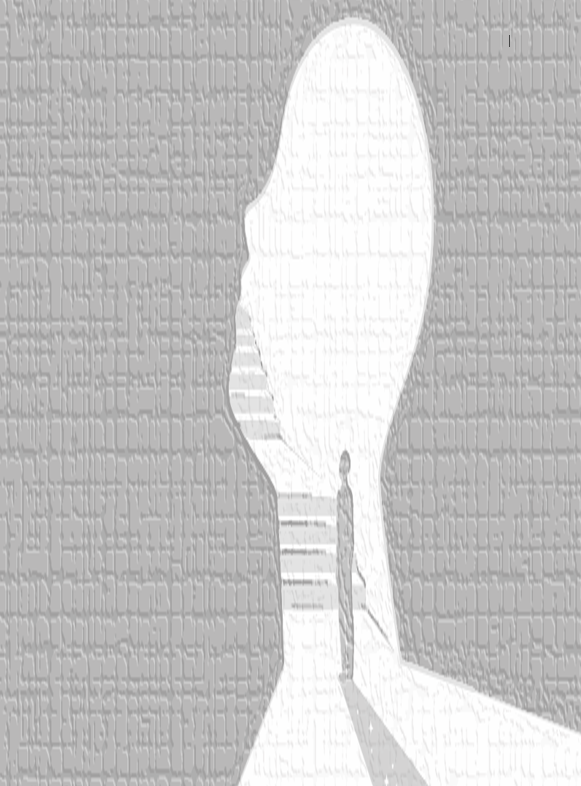We often ask others to understand us during our conversations with them, and quite often misunderstandings arise between us and those we are engaging with over a particular subject. We tend to claim that we are rational, and we believe others are not rational enough, which leads to a deadlock in communication. Many times, we consider that one of the issues in our societies is our inability to accept the other who differs from us in their thoughts, beliefs, ways of dealing with the world, and the facts, events, and realities within it. However, we rarely examine ourselves and admit that we might not be as rational as we should be when communicating with someone different from us. We seldom reflect on our own thoughts and recognize our inner world. It is rare for us to acknowledge that we may be cognitively biased.
So, what is cognitive bias? What are its types and its impact? And how can we overcome it?
Bias is a deviation, and when we talk about cognitive bias, we mean a deviation in how the mind uses reason to reach concepts, judgments, and ideas about the phenomena around us. If the process of building knowledge is one of the first steps in human development, it is essential that we focus on correcting the flaws that might hinder the process of knowledge construction, with cognitive biases being among the most important of these flaws.
Cognitive biases are distortions in the way we think that prevent anyone from making rational thoughts, behaviors, and decisions. They are mechanisms that help the brain process information faster, though less accurately.
Each of us claims to be rational, and when we discuss something with others, we ask them to use their minds. Are we truly rational while others are not? Why do we show bias towards our own group, religion, or tribe? Do we believe they are infallible and possess absolute truth while others do not? Why do we avoid newspapers or sources that do not support our ideas? And what causes us to cling to the past and fear the future?
How can the mind, which God created to be free, be biased?
The brain is like a car—it exists in every human being even when they might have a mental problem. But the mind is the driver, and it can drive the car skillfully or lead it to destruction. "The mind controls the brain."
From a young age, a person is born into a social environment, influenced by various socialization institutions, speaks a specific language, adheres to a particular religion, and finds themselves in a certain belonging that shapes their personality and affects their way of thinking and interacting with the world and its facts. When we attribute sacredness to certain meanings in our minds, we automatically assume they are infallible, absolutely true, and not relative. This sense of sanctity affects the way we think, making it difficult for us to see the limits and relativity of these meanings when dealing with others, issues, or events.
Instilling sanctity into certain concepts and beliefs from an early age, without examining their validity or exploring other beliefs and ideas, poses a significant risk. In such cases, everything that does not align with our beliefs in our minds is seen as "the wrong other" or "the false opinion." A person may tend to treat members of their cognitive and life group better than those who are not part of that group.
What we grew up with, or what we have become accustomed to reading or hearing, forms a comfort zone, so that anything new or different that enters this zone is automatically rejected.
In this case, a person tends to mentally select information and interpret it in a way that aligns with their pre-existing thoughts, neglecting the need to examine this information accurately and objectively, which leads to deviation in thinking and making irrational judgments.
In reality, we are all, unconsciously, subject to the influence of cognitive bias. Our psychological nature tends to favor people who are similar to us and ideas that align with our beliefs. When faced with a problem, we tend to search for solutions that support our views and emotions.
Cognitive bias, including its most dangerous types, is a psychological-social phenomenon that affects everyone, even professional researchers. For example, a researcher may start with a certain hypothesis and search for information that supports it unconsciously, leading to a systematic bias in their research.
Types of Cognitive Bias
-
Fundamental Attribution Error: This refers to attributing a person's behavior to their internal characteristics rather than the external circumstances. This type of bias occurs when we justify our own behavior based on external factors, while explaining others' behavior based on their personal traits.
-
Halo Effect: Judging a person or thing based on one prominent trait or impression, ignoring other characteristics.
-
Confirmation Bias: The tendency to search for information that supports our preconceived beliefs and ideas.
-
Blind Spot Bias: The belief that we are less biased than others, or that our biases do not affect our decisions.
-
Hindsight Bias: The tendency to believe, after the event has occurred, that we could have predicted it, which reinforces our sense of being able to predict the future.
-
Negativity Bias: The tendency to focus on negative events and downplay or disregard positive experiences.
-
Optimism Bias: The tendency to overly expect positive outcomes, often inflating the likelihood of success.
-
Sunk Cost Fallacy: The tendency to continue investing in something due to past investments, even when it is no longer beneficial.
-
Self-Serving Bias: Attributing our success to our own efforts and qualities, while blaming failures on external factors.
-
Anchoring Bias: The initial information we are exposed to significantly influences our future decisions and judgments.
-
Dunning-Kruger Effect: People with low ability tend to overestimate their own abilities.
-
Bandwagon Effect: The tendency to align with the views of large groups to avoid social exclusion.
-
Cheerleader Effect: The tendency to overlook the flaws of people we admire or celebrities.
How to Confront Cognitive Bias?
Since cognitive bias is an unconscious error in thinking, the first step is to acknowledge its existence and move beyond the denial that may be part of the problem. We must be ready to listen to differing opinions without feeling threatened.
It is crucial to practice critical thinking, which allows us to analyze information logically and away from personal biases.
Additionally, we should avoid rushing to judgment and be ready to revise our thoughts when we discover they are incorrect. Critical thinking requires us to always be open to others' ideas and see the bigger picture rather than clinging to our fixed beliefs.
Being fully aware that we might be cognitively biased in our thinking helps us make better, more rational decisions.







 2025 / 16 / Jan
2025 / 16 / Jan


